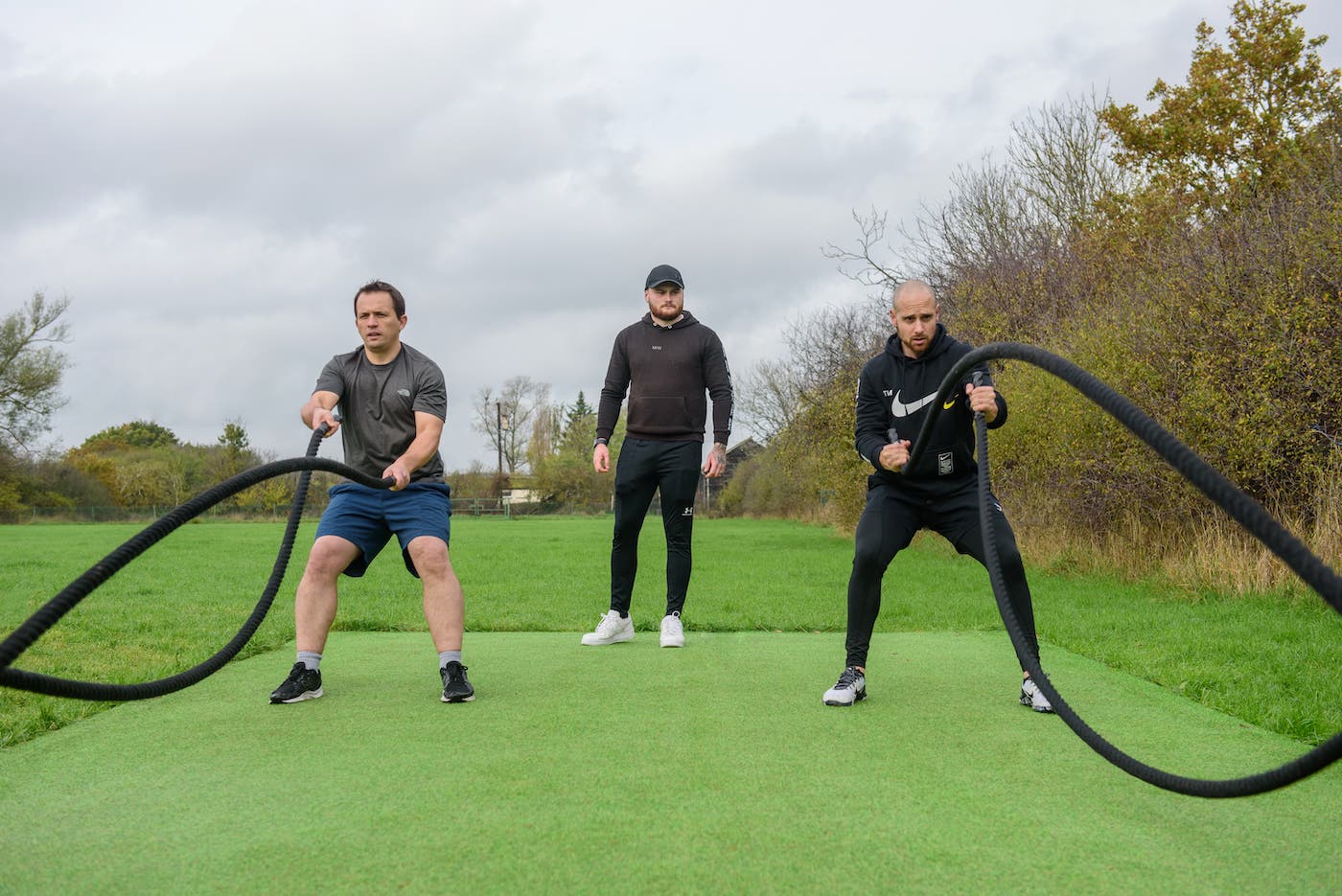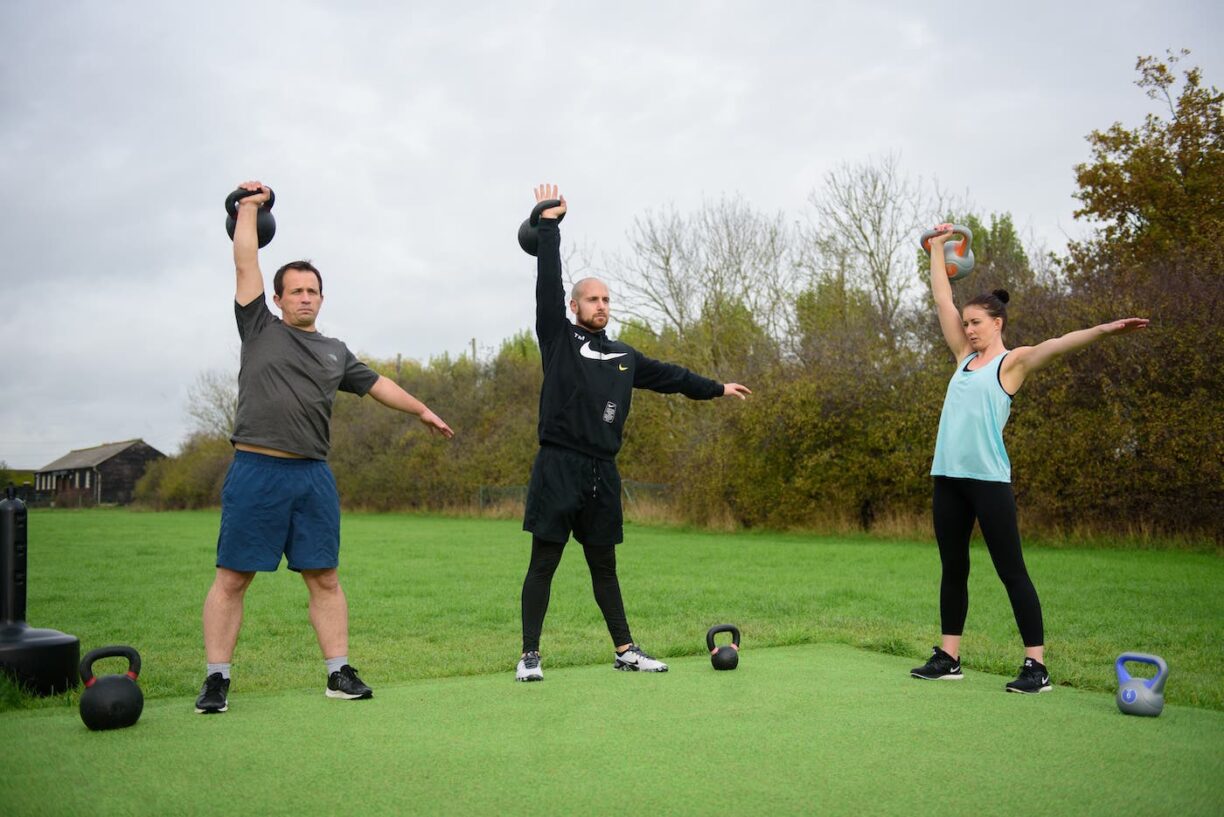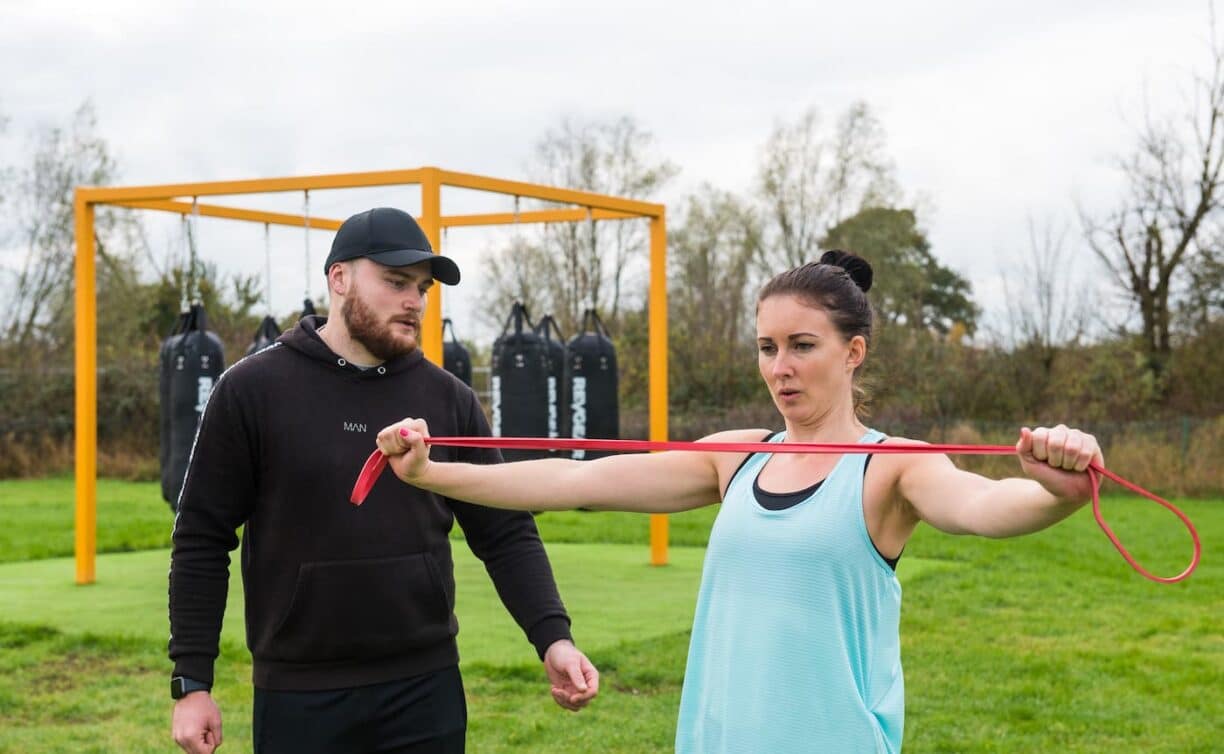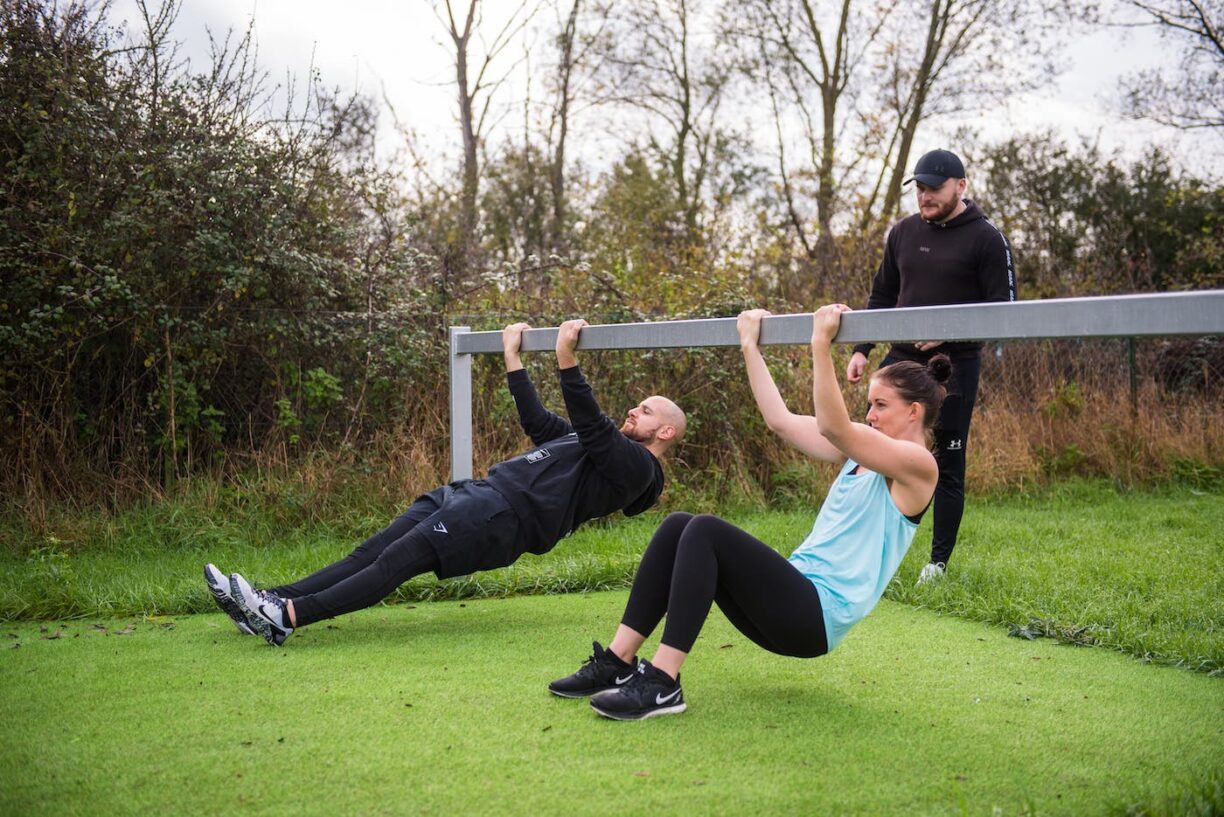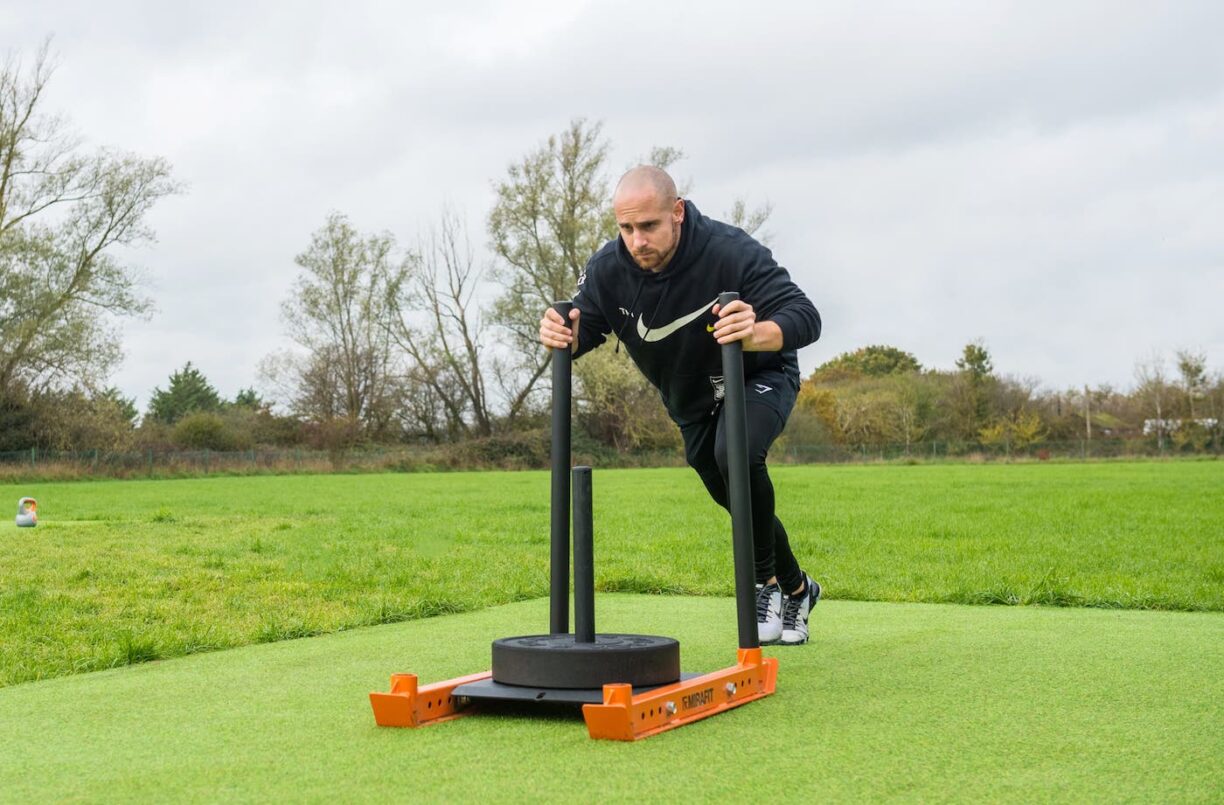As we’re now being eased out of lockdown, lots of us are becoming increasingly invested in our fitness regimens; we’re surrounded by a narrative that tells us we all need a ‘glow up’ and, as a result, all too many people are putting themselves under an unhealthy amount of pressure to quickly lose weight.
Evidently, our fitness goals are becoming unrealistic meaning they’re detrimental to not only our physical health but our mental wellbeing.
Meanwhile, if you don’t fall into this category, you may still struggle to define positive and realistic fitness goals; whether this is due to a lack of understanding or being faced with a whirlwind of conflicting advice.
In any instance, it’s important that we decipher what is healthy, what can be achieved without pushing our bodies to the brink and the habits that we all need to leave behind.
To help you achieve this, defining positive and realistic fitness goals that you really can reach, Rees Crawford, Lead Trainer from the Elite Outdoor Fitness Academy, is sharing his expertise.
With a little guidance, we can all enjoy a more enriching fitness routine, without falling victim to endless myths and misconceptions.
- Consider your unique abilities.
‘We’re all guilty of comparing ourselves to others but when it comes to fitness and body image this isn’t a good thing.
We see fitness fanatics on Instagram and think ‘If they can lift that, I should be able to!’ whilst living in awe of drastic transformation photos, assuming they’re genuine; ultimately, we judge ourselves based on other people’s achievements.
Whilst inspiration is helpful, and we are capable of achieving almost anything we set our minds to, we must remember that we’re all unique – therefore, what we can achieve is completely unique to us. When setting fitness goals, you must focus on yourself and yourself alone.
Consider your body shape, exercise history (are you used to working out?), lifestyle and diet before setting any goals; these factors will all influence your results and it’s important that you’re realistic.
Similarly, make sure you set feasible goals that aren’t impossible to accomplish from the outset; for example, instead of striving to lose a stone in a month, simply set yourself the goal of attending one fitness class a week, allowing yourself to learn and come to love exercise for the right reasons. If your goals are healthy, achievable and motivating then you’ll be on the right track.
For example, most of my clients began their fitness journeys by joining one or two group sessions a week; they wanted the support that group sessions bring and didn’t expect to become an entirely different person within a week. Instead, we all work together to achieve long-standing results in a supportive environment.’
- Take small steps.
‘If you’ve never stepped foot inside a gym before, haven’t yet discovered a passion for fitness and suddenly expect yourself to become a gym bunny overnight, then you’re sorely mistaken… drastic changes to your lifestyle are rarely sustainable and if you turn your routine upside down, it’s unlikely you’ll stick to this pattern in the long-term.
To define truly realistic fitness goals, they must consist of incremental steps which show gradual, patient progression. If approached in this way, fitness will become an enjoyable hobby – not a fad.
Similarly, the suggestion that you need to cut out whole food groups from your diet is absurd and certainly not something that’ll positively enhance your life or fitness results.
Balance is the most important thing, without question, and for your results to last your changes must be life-long; quick results aren’t sustainable results.’
- Remember your long-term goals.
‘If you have a specific goal in mind, for example to lose a certain amount of weight, lift a specific number on the bench press or similar, then it’s easy to be dismayed or side-tracked.
You might skip a workout or enjoy an indulgent meal and suddenly feel like you’re never going to accomplish your goals – that’s not the case!
For your results to be sustainable you must allow yourself to actually live your life, enjoying everything that makes you happy. The key is moderation and balance.
To help keep you motivated and on track, I would suggest remembering your long-term goals at all times. Having one fun weekend or an indulgent holiday needn’t be a setback; you’ll get there, you just need to be patient and kind to yourself.’
- Don’t undervalue your smaller wins.
‘If you’re putting yourself under pressure to achieve something specific then you probably don’t give yourself enough credit when it comes to your small wins.
Every measure of personal growth and success should be celebrated; this will keep you feeling positive whilst refreshing your sense of determination.
As with anything in life, if you never allow yourself to feel satisfied and proud of yourself then fitness will never make you feel good and, above all else, that should be your most important goal.
In conclusion, I’d like to reiterate the importance of setting realistic goals and not trying to rush your results; this will simply mean they don’t last.
Similarly, remember the value of support, if you don’t know what you should be striving for or how to get there then don’t guess or compare yourself to others. Instead, seek professional advice and join a local workout group; this camaraderie and support will keep you on a positive, fulfilling path.’
To find out more about the Elite Outdoor Fitness Academy visit www.elitefitnessacademy.co.uk.
